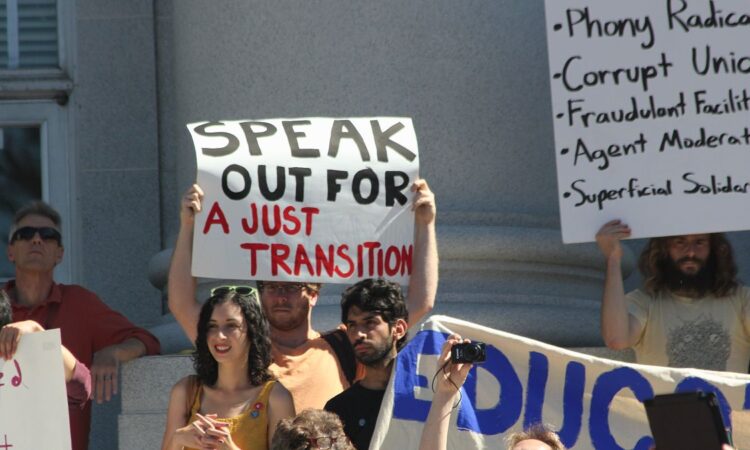
Mammoth sums needed to deliver EU’s green transition put prosperity at risk, claim NGOs and academics.
A long-term EU just transition fund and progressive taxes are required to fulfil the European Green Deal, more than seventy organisations will urge leaders gathering for a European Council summit in Brussels this week.
Ahead of the meeting of heads of state and governments in Brussels tomorrow and Wednesday (16 and 17 April), 77 civil society organisations, trade unions and academia are urging EU leaders to revise the priorities set out in a leaked Strategic Agenda 2024-2029, a document meant to guide the political priorities of the upcoming EU mandate, arguing otherwise they are “on the wrong side of history”.
Belgian Prime Minister Alexander De Croo warned last week of the huge cost of the Green Deal’s implementation — one trillion euros every year for the next 25 years — a sum that prompted the letter’s signatories to urge EU leaders to “reject unnecessary fiscal consolidation” and instead back the “creation of a post-2026 long-term green and social investment fund”.
According to the letter, such an EU public investment fund should be designed “to drive the socially just transformation of the EU economy towards net-zero circularity, giving confidence in the transition and strengthening social cohesion.”
The signatories also encourage EU leaders to set up a tax on extreme wealth, a frequent flyer levy, an excess profit tax on fossil fuel enterprises and a financial transaction tax.
Next Tuesday (April 23), during the last Strasbourg plenary session before the EU elections, lawmakers are expected to rubber-stamp a law aimed at finalising new fiscal rules, which the letter’s signatories say will trigger a wave of cuts to public budgets across Europe.
Laura de Bonfils, secretary-general of Social Platform regretted the “lack of a social dimension” in the leaked Strategic Agenda, which focuses mostly on competitiveness, productivity and defence.
“The next mandate needs to set an ambitious social agenda, supported by a long-term fund post-2026 to deliver a fair and inclusive transition,” said Bonfils.
“EU leaders meeting to discuss priorities for the next European Commission seem to have learnt little from failed austerity, as well as recent backlash to green policies,” said Danny Sriskandarajah, chief executive of the New Economics Foundation.
Benoît Lallemand, secretary general of Finance Watch, also noted the “disappearance” of climate and environmental from the political radar and commented on the dangers of diverting funds from quality public services.
“Shrinking the budget of essential public services and social safety nets, freezing investments in a resilient and sustainable economy while deregulating and subsidising big business with no strings attached is a recipe for economic, social and political disasters,” said Lallemand.






